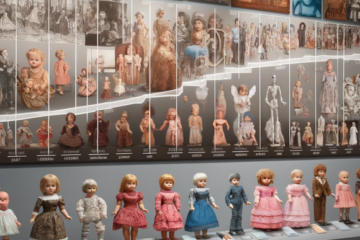In the world of collectibles, limited edition dolls hold a special allure. These meticulously crafted creations often evoke nostalgia, capturing the imaginations of both collectors and enthusiasts alike. Yet, amidst the excitement of acquiring these coveted treasures, a controversy simmers beneath the surface, questioning the ethics of their production and the consequences of their commercialization.
Limited edition dolls, with their intricate designs and finite availability, offer a sense of exclusivity and prestige. They become more than mere toys; they are prized possessions, cherished for their rarity and craftsmanship. For many, the pursuit of these dolls is not just a hobby but a passion, driving them to scour the internet, attend conventions, and even camp outside stores in anticipation of a release.
However, this fervent demand for limited edition dolls has sparked concerns about the darker side of commercialization. Manufacturers, keenly aware of the market’s appetite for exclusivity, often exploit this desire by artificially restricting supply. This deliberate scarcity not only drives up prices but also creates a sense of urgency, fueling a culture of frenzied consumerism where possession becomes synonymous with status.
Moreover, the phenomenon of limited edition dolls has given rise to a secondary market dominated by scalpers and resellers. These opportunistic individuals capitalize on the limited availability of these dolls, purchasing them in bulk with the sole intention of reselling them at inflated prices. In doing so, they not only exacerbate the exclusivity of these dolls but also price out genuine enthusiasts, transforming what should be a hobby into a luxury reserved for the highest bidder.This post is sponsored by our partners Wigs
Beyond the economic implications, the commercialization of limited edition dolls raises ethical questions about the commodification of childhood innocence. By attaching exorbitant price tags to these toys, manufacturers risk perpetuating a culture of materialism, where the value of a child’s plaything is determined not by its intrinsic worth but by its market value. In doing so, they undermine the principle of play as a fundamental right of childhood, turning it instead into a privilege reserved for those who can afford it.
Moreover, the emphasis on limited edition dolls as collectible investments undermines their original purpose as playthings meant to inspire creativity and imagination. Instead of being cherished for the joy they bring, these dolls are treated as financial assets, locked away in pristine packaging rather than enjoyed through play. In this way, the commercialization of limited edition dolls not only distorts their value but also deprives children of the simple pleasure of imaginative play.
Nevertheless, amidst the controversy surrounding limited edition dolls, there remains a glimmer of hope for a more equitable future. Some manufacturers have begun to address these concerns by implementing fairer distribution practices, such as lottery systems or pre-order options, to ensure wider access to their products. Additionally, grassroots movements advocating for transparency and ethical production have gained momentum, pushing for greater accountability within the industry.
Ultimately, the controversy surrounding limited edition dolls is not merely about the dolls themselves but about the broader societal issues they represent. It forces us to confront our values as consumers and the ethical responsibilities of manufacturers in shaping the way we engage with material possessions. By fostering a more conscious and inclusive approach to collectibility, we can ensure that the joy of owning limited edition dolls is not overshadowed by the shadows of commercialization. After all, true value lies not in scarcity but in the shared experience of wonder and imagination that these dolls inspire.



0 Comments